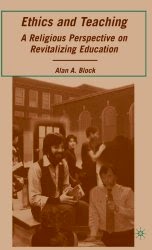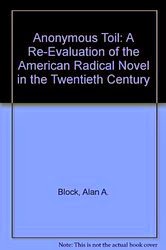Reviewing the situation: a beginning
No, I have been listening to actual streaming radio. For example, right now at
But mostly I listen to several stations dedicated to folk music, and I have begun to notice that once I put the station on and begin to listen, I find it very difficult to turn the music off. I am somehow captured by the music, pinned onto it, as it were, and of late I have been wondering what there is, and has been, about folk music that so matters to me. Downstairs, there are albums—vinyl—that I possess but that I cannot remember purchasing. In my adolescence, competing on the radio with rock n roll were the purveyors of the music that came to be known as the music of the folk revival. This music, Jack Kerouac and Mr. Matienzo, my senior English teacher, led me down to the coffee houses of Greenwich Village, and my early record collection contained a not inconsiderable sampling of the folk music I heard there. How exactly I came into possession of these albums, as I have said, I cannot recall: Peter, Paul and Mary, the latter with whom I was in love and whose hand I so wanted to hold; Tom Paxton, Eric Anderson, Phil Ochs, Carolyn Hester, Dave Van Ronk. On one of my first dates, I took my beloved Renee to the Hempstead Arena in 1964 to hear Joan Baez. I owned all of Baez’s early albums as well as those of Judy Collins. I began to haunt Greenwich Village in the early 1960s: it had to be then because I left New York City for college in 1965. Now, seeking a congruence between the stored image and the hidden emotion, I see myself walking the streets of the Village— at first during the daytime seeking out the ‘hippies’ and the folk artists—and then soon ascending during the nights and crossing onto Bleecker and Macdougal Streets. If there is a hidden emotion, it exists in the longing to descend once again into the dark basement space that was the Gaslight Café, or the Café Wha? or Café Wha Not? The Fugs played there, I recall, and even an early incarnation of the Mothers of Invention. The drums of Olatunji poured out of the closed doors of one of the haunts: but I was there after the folk music.
I do not recall what captivated me: perhaps it was what I thought of as its purity; its social conscience, though how that evolved in me I cannot pinpoint. Folk music could be heard in those coffee houses. In the days and years before the appearance of Starbucks et al., that drink was weak and veritably tasteless, but a Coca-Cola could be purchased, I think, or a tall glass of iced tea. Perhaps the Bitter End had a liquor license, but at the time 21 was the legal drinking age, and I was far too young—and young-looking—to enjoy the opportunity of more potent drink. Though the folk musicians were scruffy, I had not yet begun to shave, but I wore black chinos and a black turtleneck for effect. I was a steady visitor to the Greenwich Village folk music scene. Kennedy’s assassination had introduced me I think, to evil, an element in much traditional folk song; and the civil rights movement had offered me something external to which I could belong that was not my culture. Folk song was current. Tom Paxton’s first album was called “All the News that’s fit to Print,” a line borrowed from the masthead of The New York Times. Phil Ochs’ first album was entitled “Ain’t That News.” I remember reading that Eric Anderson (whom I met while I roamed the streets of Greenwich Village) wrote “Thirsty Boots” as a tribute to friends who had participated in Freedom Summer. I own that album as vinyl. In November of my first year at Roanoke College Judy Collins performed in the gymnasium and for her encore sang “We Shall Overcome.” To me it was already a familiar anthem.
I adored rock n’ roll: it freed me from the staid, proper, repressed and focused life that white suburban living liberally supplied me. It was its rhythms, its anarchic possibilities, its means of escape that drew me to it. It articulated my personal frustrations, gave voice to my angst, offered me moments of release. Winterson says, “You can be a loner and want to be claimed.” Rock n’ roll claimed me and I felt less alone. But folk music awakened something in my consciousness (or did it perhaps merely ‘find’ that something) that changed me profoundly. Folk music was the object that when found I knew I had lost. Lostness is a function of separation from that which gives meaning. Dylan said, “A folk song may vary in meaning and it might not appear the same from one moment to the next. It depends on who’s playing and who’s listening.” I was listening. Jeanette Winterson says “We don’t seek happiness: we seek meaning!” I think it was in folk song that I found meaning. In her memoir Jeanette Winterson writes: “We get our language back through the language of others. We can turn to the poem . . .” I did not recover my language in rock n’ roll: there I found my self and my joy. But in my immersion in folk music I learned a new language. I turned to the poem. And I became an English major. And that has made all of the difference.











